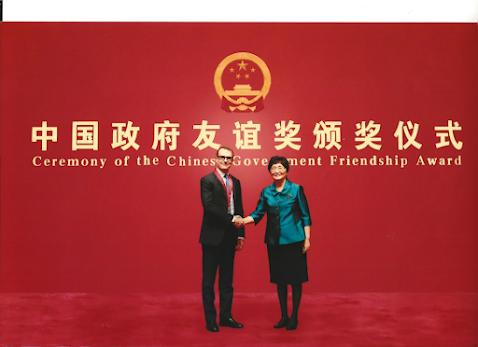New Global Plant Conservation Strategy: Empowering a Global Response to Combat Transnational Plant Crime under the Kunming-Montreal Framework
In response to CBD Notification 2023-071 - Invitation to review a draft of a proposed set of complementary actions (an updated Global Strategy for Plant Conservation) related to plant conservation to support the implementation of the Kunming-Montreal Global Biodiversity, here's the first suggestion by the China Biodiversity Conservation and Green Development Foundation (CBCGDF) to the New Global Plant Conservation Strategy:
The New Global Plant Conservation Strategy shall provide information and legal assistance to jointly combat transnational wildlife crimes. Taking the example of the Clean Internet for Conophytum Initiative by the China Biodiversity Conservation and Green Development Foundation (CBCGDF), the aim is to protect the critically endangered Conophytum. The issue lies not in the absence of domestic plant conservation laws in China and South Africa, nor in the enforcement of CITES; the real problem is that officials from different countries need to collaborate to support the efforts of the public in combating illegal wildlife trade. To uphold the global environmental public interest and foster the coexistence of life on Earth, CBCGDF filed a lawsuit against one of China's largest illegal Conophytum traders, known as "Dr Flower," a man from Jiangsu province. The trial began on July 12, 2023. However, during the court proceedings, the defendant "Dr Flower" claimed that although his trade of wild Conophytum harmed the environment in South Africa, it did not have any impact on China's environment. Therefore, he argued that his actions of selling wild Conophytum in China should not be subject to legal punishment.
How can such situations be resolved? How can we understand the themes of the CBD COP15 and the "Building a Shared Future for All Life on Earth" under the Kunming-Montreal Global Biodiversity Framework (GBF)? The Updated Strategy should take substantial action. Hence, we hope that the Updated Global Strategy for Plant Conservation can provide bottom-up measures to effectively address transnational illegal trade of wild plants, with support in data, capacity building, and legal assistance. This is the genuine way to support the Kunming-Montreal Framework.
Therefore, CBCGDF proposes that in Article 16, there should be an inclusion of "provide capacity building and legal aid for joint efforts in combating illegal wildlife trade." It is crucial to emphasize that this aid should not be limited to governmental and law enforcement agencies but should also be extended to civil society.
Reporter: Wendy
Editor:Maggie
Contact: v10@cbcgdf.org; +8617319454776
Contribution
Do you know? CBCGDF is a non-profit organization. We rely on crowd-funding and donations. You have the opportunity to help us to advance biodiversity conservation. Donate TODAY to power up the movement to make it a better world for all life.
https://www.paypal.me/CBCGDFChina





Comments
Post a Comment